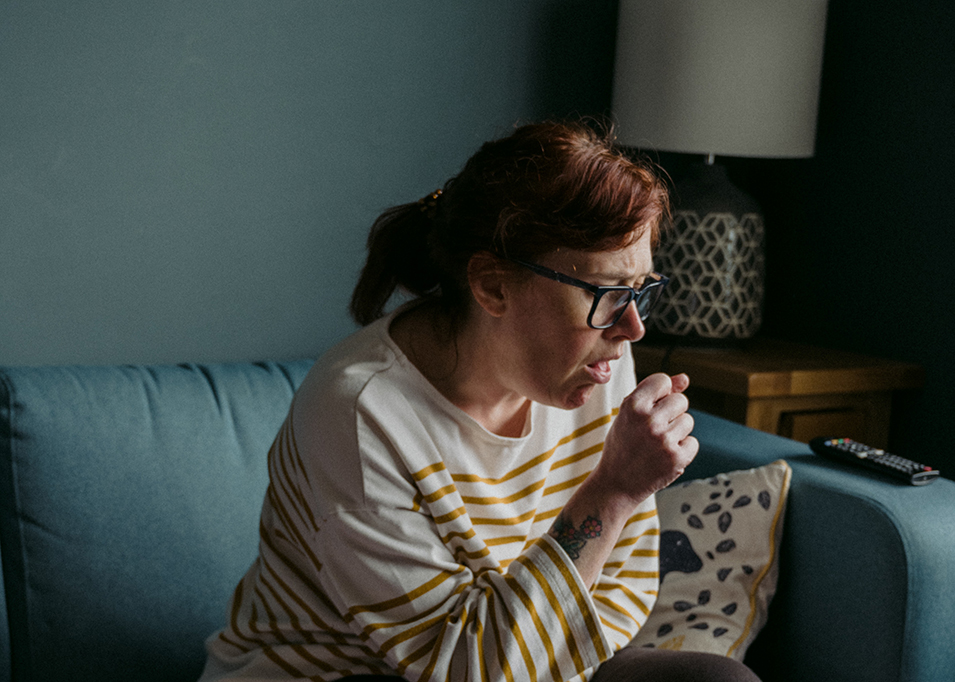A new, cross-sectional study on the prevalence of post-acute sequelae of SARS CoV-2 infection shows that women are almost twice as likely to experience long COVID symptoms, a release published on Northeastern University’s website said.
“We identified the degree to which women showed a higher risk of developing long COVID,” said Mauricio Santillana, professor of physics and network science at Northeastern and director of the Machine Intelligence Group for the betterment of Health and the Environment. “Learning more about long COVID is invaluable since COVID-19 will be a part of life for years to come.”
The research, published in the American Medical Association’s JAMA Network Open, found that, of 16, 091 survey respondents with long COVID symptoms, “10 ,075 (62.6%) were women, and 6016 (37.4%) were men.”
Results also show that age is a factor: “older adults were more at risk, with the risk increasing every decade above age 40.”
The study of more than 16, 000 individuals—executed by a team of medical professionals, clinicians, epidemiologists, and political scientists—“includes data from eight waves of the COVID States Project, an online survey that spans all 50 states.”
As Santillana said, the study indicated that vaccines helped mitigate the risk of long COVID, noting that “those who had received the first two doses of their COVID-19 vaccine had a 30% decrease in risk.” The scope of the published study did not yet include data with booster shots.
With an estimated 200 million worldwide suffering from long COVID, defined in this study as “the persistence of COVID-19 symptoms beyond two months,” Santillana said every piece of information about post-COVID conditions is valuable.
He said that it’s puzzling why long COVID might be more prevalent among women, and wondered if “there’s some mechanism that COVID may stay longer in the body for women.” He said this study “will provide new avenues for further research.”
According to an editorial published on Gender&Covid-19 website, women may be “more susceptible to long COVID due to their stronger immune responses.”
The article points out several factors—heightened IgG antibody production, elevated inflammatory marker IL-6, more active immune T cells—that could ultimately “contribute to a hyperactive and prolonged inflammatory reaction in women that leads to the persistent fatigue, myalgias, cognitive changes, and other symptoms that characterize long COVID.”
Similar results in other studies
Several studies so far have shown that women are not only significantly more likely to experience long COVID than men, but they also present symptoms that follow a distinct clinical pattern.
Back in June, a study by the researchers from the Johnson & Johnson Office of the Chief Medical Officer published in Current Medical Research and Opinion, showed that “overall, the likelihood of having long COVID syndrome was significantly greater among female versus male patients (OR = 1.22; 95% CI: 1.13–1.32).”
It also showed that the condition among women presented with a variety of symptoms—ear, nose, and throat problems, mood disorders, as well as neurological, skin, gastrointestinal and rheumatologic, and fatigue symptoms.
According to a study published in May in the peer-reviewed Journal of Women’s Health, females with long COVID were more symptomatic than males “not only in the acute phase but also at follow-up” and that sex is “an important determinant of Long-COVID-19 syndrome because it is a significant predictor of persistent symptoms in (females), such as dyspnea, fatigue, chest pain, and palpitations.”
Another study published in October in JAMA showed that “globally, an estimated 63.2% (95% UI, 59.7%-66.3%) of individuals with Long COVID were female.”




